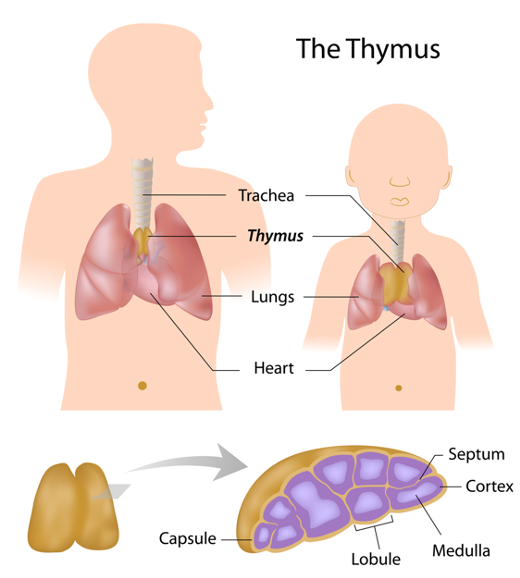Thymus:
- The thymus a lymphoepithelial organ. It is located just behind the sternum and in front of the heart. It is relatively large in infants and grows until puberty. In adulthood, it starts to slowly shrink and becomes replaced by fat.
- T-cells mature in the thymus. The body uses T cells that help destroy infected or cancerous cells. T-cells created by the thymus also help other organs in the immune system to grow properly.
- The thymus gland is also home to some macrophages of the immune system. Dendritic cells, and a few B lymphocytes (the types of lymphocytes that produce antibodies) also reside in the thymus.
- The thymus gland also contains some myoid (muscle-like) cells.
- The most common thymus diseases are myasthenia gravis, pure red cell aplasia and hypogammaglobulinemia.
- The thymus gland produces several hormones including:
- Thymopoietin and thymulin, which are hormones that assist in the process where T cells differentiate into different types.
- Thymosin, which accentuates the immune response as well as stimulating pituitary hormones such as the growth hormone.
- Thymic humoral factor, which acts similarly to thymosin, but increases the immune response to viruses in particular.


